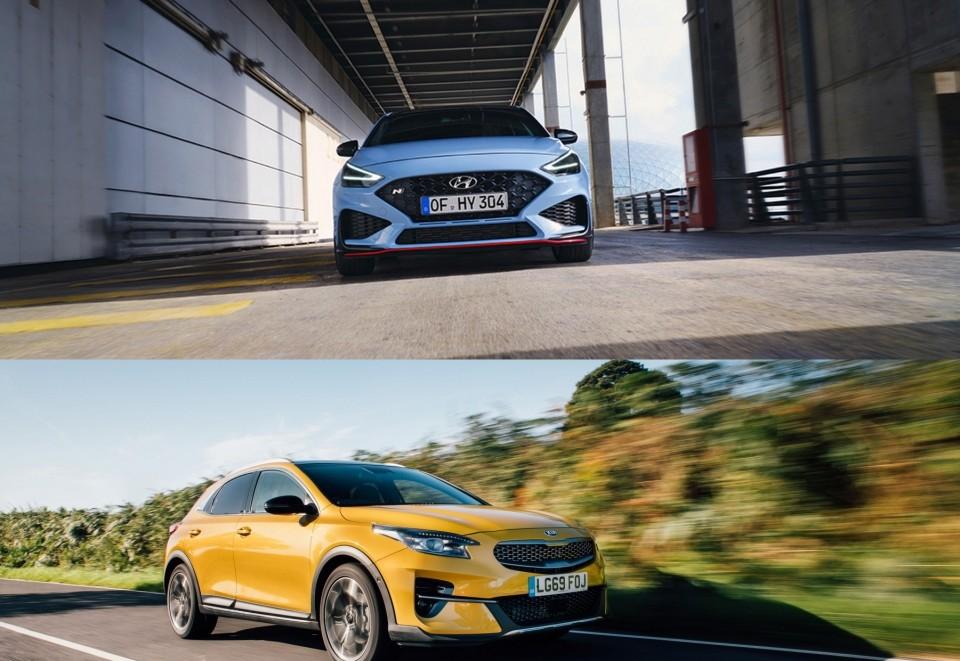A total of 2622,132 new cars were sold in Germany in 2021. This is a decrease of about 10% compared to the previous year. In this case, Hyundai and Kia's German sales stand out. This is because the two brands have increased sales in the face of overall sales difficulties.

Top 10 German brand sales in 2021 (Source: German Federal Automotive Agency)
1st Place: Volkswagen (48,9962 units, -6.8%)
2nd place: Mercedes (225,392 units, -25.7%)
Third place: BMW (222,481 units, -7.7%)
4th place: Audi (181,877 units, -15.0%)
Fifth place: Opel (161,852 units, +10.7%)
Sixth place: Skoda (149,838 units, -17.3%)
7th place: Ford (126,358 units, -35.0%)
8th place: Seat (108,726 units, -5.1%)
9th place: Hyundai (106,620 units, +1.5%)
10th place: Renault (105,944 units, -15.5%)
13th place: Kia (65,839 units, +2.4%)
Of the top 10 brands, only Opel and Hyundai Motor Group saw sales increases over the previous year. In the case of Hyundai, although the increase is 1.5%, it is already better than other brands whose sales have declined. In addition, sales of Kia's cars, which ranked 13th, also increased significantly. Of the 35 brands, 8 saw sales growth, including Suzuki (27,366 units, +22.1%), Polestar (2631 units, +153.2%) and Porsche (28,925 units, +9.9%); including Smart (24,023 units, +49.7%) and Tesla (39,714 units, +137.9%).
[1] The new SUV boosted sales
So how can Hyundai and Kia increase sales when both competitors are experiencing negative growth? First of all, the promotion of SUVs can be seen as one of the reasons. Hyundai Bayon (on sale from June 2021), Ioniq 5 (on sale from March 2021) and Kia EV6 (on sale from September 2021) are new to the SUV category, increasing the size of the SUV lineup.
There are around 145 SUV models on sale in Europe, and more than 30 brands are competing in this space. Hyundai and Kia have 11 SUV models. Hyundai's total number of models is 11, of which 6 are SUV models, more than half of which are more than half. Of Kia's 11 models, 5 are SUVs.
Hyundai, in particular, accounted for more than 58% of total sales last year. If you sell 10, 6 of them are SUVs. Considering that Germany's total SUV sales share is 36%, Hyundai's SUV share is certainly high. Kia, though 40 percent lower than modern times, also exceeded the German average.
[2] EV sales are higher
Last year, sales of electric vehicles in Germany increased significantly. Sales of gasoline and diesel, as well as hybrid and plug-in hybrids, all declined compared to the previous year, but sales of pure electric vehicles alone increased by more than double digits. The number of electric vehicles sold in 2020 is higher than last year. In addition, Hyundai and Kia's market share growth is mainly driven by electric vehicles. In addition, most of the electric vehicles they sell fall into the SUV category.
Kona is a classic example. Of last year's Hyundai models, the Kona SUV (29,982 units) was the fifth best-selling SUV in Germany.
The same goes for Kia, with the Niro EV accounting for 69% of Niro's total sales (8548 units). The Soul, which was discontinued in South Korea, is also sold as an electric vehicle in Europe, but a look at sales in Germany (2,536 units) alone shows that it has performed better than expected. Therefore, Hyundai and Kia's sales are closely related to the performance of their electric vehicles.
As a result, Hyundai and Kia are expected to be more aggressive in promoting electric vehicles in the European market rather than engine cars. Especially Hyundai and Kia, fortunately, there are not many small SUVs and pure electric vehicles in the compact CUV category on the market.